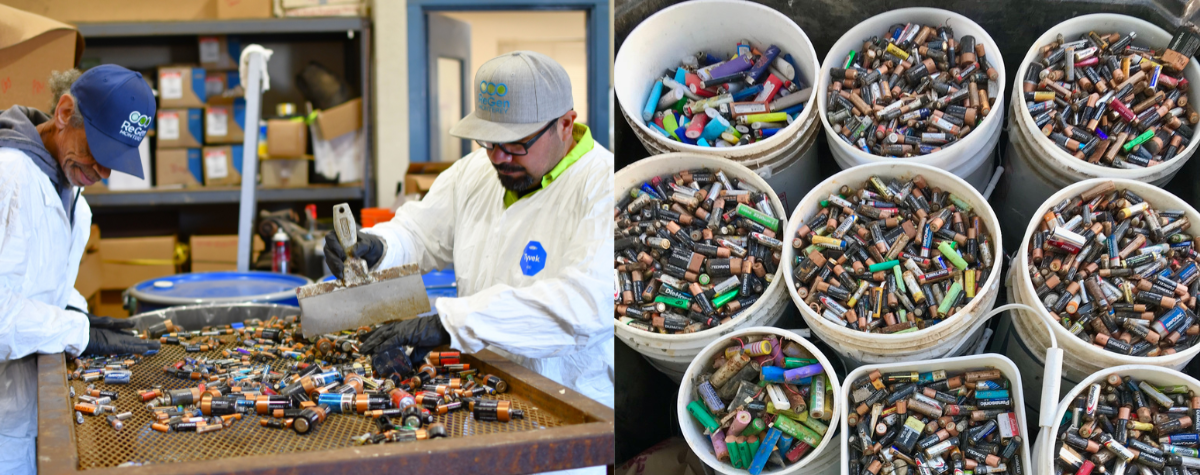Most people know that batteries are bad for the environment. What many don’t know is that discarded batteries are a growing cause of potentially fatal fires.
Lithium-ion batteries are especially risky. Because they’re so efficient, they’re used in countless rechargeable products, including smart phones, power tools, electric toothbrushes, and even robotic vacuums. But if they’re not disposed of properly, they can suddenly burst into flames — and they frequently do, endangering everyone nearby.
Fires in waste-processing facilities are on the rise and breaking records. In 2021, 367 fires were reported by US and Canada waste-processing facilities. But since many fires go unreported, the real number may have been as high as 2,200, according to Fire Rover, a maker of fire safety equipment. Two people were reported killed and 37 injured.
ReGen Monterey experiences a fire a week at our landfill and recycling plant. Recycling-sorting machinery at its Monterey County facility have burst into flames because of a lithium battery in the stream. Employees close to the machinery were unharmed, but such fires are happening more and more often and are a constant concern.
A similar fire in San Carlos in 2016 caused millions of dollars in property damage and revenue loss.
In addition to being toxic, lithium is extremely flammable. ReGen Monterey employees watch out for batteries vigilantly and take precautions, but we are recovering 5,000 POUNDS of batteries in our recycling plant each month, and need members of the public to help protect them too.
A lithium-ion battery can ignite simply by being broken, exposing the lithium to air. Other causes include vibration, overheating, and short circuits, among others.
It’s easy to imagine how often such things can happen in a waste facility or vehicle, where batteries may be dropped onto hard surfaces, driven over, banged, or compressed and shredded inside machines.
In addition to fire, there’s a serious associated risk from the release of toxic chemicals such as fluoride gases, as described in a 2017 article in the journal Nature.
What can be done? Luckily, one high-impact measure is now easy and free: local residents can simply put their used batteries in a plastic bag and place them on top of their recycling bin for pick-up on collection day. Batteries should never go inside the bin, though, since even regular ones contain poisonous compounds that can leak into the environment and threaten health.


